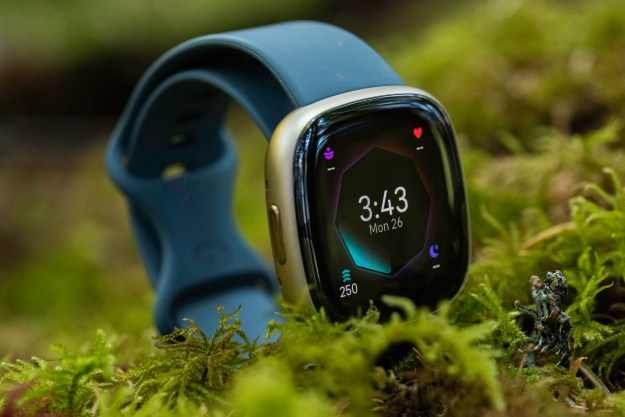
After years of losing sales and marketshare to Apple and Google, BlackBerry needed a decisive, no-nonsense CEO who knows how to make bold decisions. And with John Chen, that’s exactly what the company got.
“If I cannot make money on handsets,” the freshly minted executive declared last week, “I will not be in the handset business.”
That single sentence captured the collective imagination of the tech press, which has been on a BlackBerry (nee RIM) deathwatch since the release of the first iPhone. But while many critics would welcome the end of the BlackBerry handset, both the company and the broader smartphone market would be better off with BlackBerry still in the hardware game.
As the President himself can attest, nobody does security like BlackBerry.
In other words: If something doesn’t work, we’ll change it. It’s a simple philosophy, to be sure, but one that’s seemed pretty foreign to BlackBerry’s strategy over the past few years, as the company has sat and watched its once-mighty smartphone market share evaporate. He caps the post by stating emphatically, “We have not given up and we are not leaving the Devices business.” Leaving, no. Reprioritizing, hopefully.
That anyone still carries a BlackBerry these days is a testament to precisely how well the company did its job back in days before people began bringing their own devices to work. The major failure of BlackBerry 10 was its attempt to go head to head with the Apples and Samsungs of the world. BlackBerry’s continued existence relies on recognizing that identity crisis and revisiting what it knows. Under Chen’s leadership, the company will likely (and hopefully) re-embrace those roots.

A smaller and more nimble BlackBerry could return its focus to those elements that made the company such a success in the business world in the first place. Even as the bring-your own-device movement continues to gain steam in the workplace, there will continue to be a place work-focused, security-driven handsets. With the NSA and giant OpenSSL bugs plaguing the Internet, security is becoming a bigger deal than ever before.
And as the President himself can attest, nobody does security like BlackBerry — a topic surely at the front of everyone’s minds in the wake of last week’s Heartbleed scare. BlackBerry 7 is an ultra-secure mobile operating system, and the company managed to secure NATO and Department of Defense certification for the more consumer-facing BlackBerry 10. These sorts of clearances are incredibly important when it comes to signing major contracts with government bodies and corporations with major security concerns.
No one makes smartphone keyboards better than BlackBerry.
Turning its back on devices would also mean forsaking BlackBerry’s early footprint in the developing world, a market every other phone manufacturer is eying as more and more people in places like Africa and India use mobile phones as their primary or only computing device. Not embracing that market would mean yet another in a long line of huge missed opportunities for the smartphone maker, as competitors like Nokia work to gain ground there.
Re-embracing its roots may also start with the keyboard. It may seem hard to believe for those of us who picked up touchscreens and never looked back, but keyboards are still important to a number of users — particularly for those using handsets for work-related purposes. And no one makes smartphone keyboards better than BlackBerry. That’s why when the Ryan Seacrest-backed iPhone add-on Typo set out to build a keyboard, it took a long, close look at the Canadian company — infringingly close, in fact. BlackBerry just won a preliminary injunction against the company, and for good reason. That thing looks like it was ripped directly from a Bold.

What’s made it particularly difficult to stomach the prospect of BlackBerry handsets disappearing, however, is what that will mean for the larger smartphone space. In an arena dominated by two mobile operating systems, diversity will always be a good thing. It pushes innovation, it increases selection for the end consumer, and it helps to keep the big guys honest.
From the looks of it, Chen is taking BlackBerry in the right direction. It’s going to be a long, hard fight, certainly, a fact that he has had no trouble acknowledging. And while we’re not likely to see the company returning to its glory days any time soon — if ever — the mobile device market is large enough for a company like BlackBerry to exist alongside the Apples and Samsungs of the world. It just needs to be lean, nimble, and focused on those elements that made it a success in the first place, flashiness be damned.
Editors' Recommendations
- BlackBerry trailer depicts the rise and fall of the iconic phone
- BlackBerry’s latest revival attempt crashes before launch
- The BlackBerry Key2 shows why software updates really matter
- Classic BlackBerries are finally losing suppport as company shuts down services
- BlackBerry rises from the grave: New 5G phone with a keyboard coming in 2021


